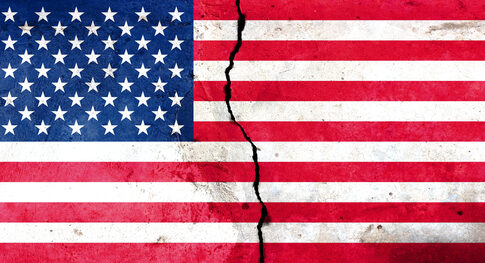In a striking revelation about political donations within higher education, a recent report has found that an overwhelming majority of presidents from top-ranked universities in the United States are donating to Democratic candidates and causes. According to data collected, approximately 93% of these university leaders have made contributions to Democratic campaigns, highlighting a significant partisan preference within the academic elite.
The data underscores the entrenched political leanings of university leadership at prestigious institutions, raising questions about the potential impact on campus culture and policy decisions. The disparity in donations suggests a strong alignment with Democratic values and priorities among university presidents, which could influence the administrative decisions and overall direction of these institutions.
93% of top 25 Universities donate to Democrats. No surprise here…
— Commander Listless 🇺🇸🏴☠️ (@SCReid_10XCoach) July 25, 2024
This trend is not entirely new but has become more pronounced in recent years. The findings also align with broader patterns of political contributions in academia, where faculty and staff tend to lean heavily Democratic. This political homogeneity at the highest levels of university administration may contribute to a perception of bias in higher education, potentially affecting public trust and the perception of academic institutions as neutral grounds for debate and learning.
The implications of such a skewed political landscape are significant. Critics argue that this overwhelming support for one political party could lead to a lack of diversity in thought and a suppression of conservative viewpoints on campuses. This environment might discourage open debate and the exploration of a wide range of perspectives, which are crucial for a robust academic experience.
🚨 Report Alert 🚨 New research from CHIP50 universities reveals the Biden debate 'crisis' is just media hype! Voter preferences holding steady post-debate. 🗳️ #MediaSpin #ElectionInsights pic.twitter.com/bZwoZIe186
— Democrat Rolodex (@DemocratRolodex) July 11, 2024
Moreover, the report comes at a time when public confidence in higher education is already facing challenges. A recent survey by the Foundation for Individual Rights in Education (FIRE) indicated that confidence in U.S. universities is dwindling, especially among younger adults and women. This decline in trust can be attributed to various factors, including perceived ideological biases and incidents of censorship on campuses.
These revelations also coincide with broader political tensions and debates about the role of higher education in society. As universities continue to navigate their responsibilities in fostering inclusive and open environments for all viewpoints, the significant lean towards Democratic donations by their presidents could further fuel the debate about bias and free speech in academia.
The trend of political donations is particularly concerning for those advocating for balanced representation and the encouragement of diverse political discourse. With university presidents playing pivotal roles in shaping the policies and culture of their institutions, their political donations could reflect and reinforce the broader ideological leanings within the academic world.
In conclusion, the report on university presidents' political donations sheds light on the deep-rooted partisan preferences within the leadership of America's top universities. As these institutions continue to influence the next generation of leaders and thinkers, the question of how their political biases might shape the future of higher education remains a critical discussion point for policymakers, educators, and the public alike.

